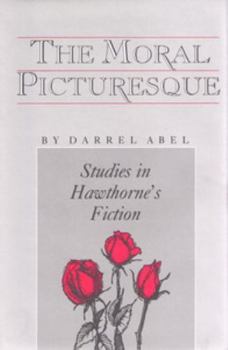The Moral Picturesque: Studies in Hawthorne's Fiction
The book is a collection of fourteen essays by Abel on Hawthorne's fiction. The essays were published over a span of about thirty-five years in various scholarly journals. The author has revised some of these essays considerably and has added seven chapters to give the book continuity and unity. Abel studies two characteristics, besides the classic elegance of its style, that distinguish Hawthorne's fiction. One characteristic is Hawthorne's habitual use of a psychological approach to its subjects. He assumed an absolute of archetypal human experiences enacting a providentially directed drama of which he had an uncertain knowledge through sympathy with characters assuming primordial roles. The other characteristic was Hawthorne's use of the mode that he called "the moral picturesque." This was a mode of figuration of the archetypal experiences that his psychological preoccupations discovered. His sensibility penetrated more deeply than his often banal thought, and the picturesque mode enabled him to cognize perceptions that were not reducible to explicit statement. In all his work he was preoccupied with two concerns: how the ideal appears in the real world, and the distinction and relation of the sexes. He saw in both these concerns paradoxes of opposition and affinity. He dealt with these paradoxes, not as subjects of philosophical speculation, but as matters for artistic treatment. In fact, he thought that the problems of relation posed by these paradoxes were insoluble, and his sole concerns was to present them vividly and dramatically.
Format:Hardcover
Language:English
ISBN:0911198911
ISBN13:9780911198911
Release Date:June 1988
Publisher:Purdue University Press
Length:324 Pages
Weight:1.60 lbs.
Dimensions:1.3" x 6.2" x 9.2"
Customer Reviews
0 rating





